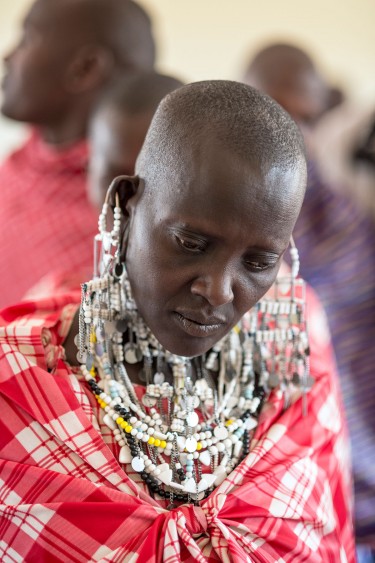
Commentary & Critique - Cultural Appropriation
Cultural appropriation for design inspiration is the norm in the fashion industry.
Brother Vellies was founded with the goal of introducing African footwear to the world, and sustaining artisanal jobs. Handmade in Africa and Morocco, Brother Vellies creates footwear infused with the spirit of African creativity. Vellies is African slang for a local version of the original desert boot, correctly called a velskoen. This boot gave birth to the business in name as well as style, forming the basis of the collection. Produced in a small South African workshop, they make a few dozen pairs a day, entirely by hand. Established in 1963, the workshop welcomes artisans of every stripe without prejudice, irrelevant of gender, sexual orientation, background or tribe.
Formed from just three pieces of leather, artisans sew the entire Vellies boot together without the use of nails or tacks. The boot is made from Kudu leather, an animal byproduct that is the result of a government mandated cull due to over population. Kudu leather is characterized by scars and unique marks each one unique to the individual animal, and every part of the skin is utilized. The collection also features Nile Perch, Springbok and Rabbit, all sourced locally from farmers in Kenya and South Africa, and all a byproduct of the food industry. The brand work as close as possible to a zero waste policy, utilizing the smallest of scraps for Brother Minis, their children’s shoe line.
The collection includes the iconic Tyre Sandal, which owes it origins to the Maasai people of northern Tanzania, who have used discarded car tires to create durable sandal straps and soles for decades. Paying tribute to the traditional Maasai closure, the Brother Tyre sandal features a pattern of intersecting straps made from hand-cut leather. Additional styles include the School Shoe, which is based on the South African children’s school uniform shoe, similar to an Oxford; the shoe is constructed with a thick rubber sole and made in a variety of different types and colors of leather. The kids collection, known as Brother Minis, mirror the styles of the adult line, with a portion of all sales used to support the schooling of workshop employees children.
As the brand grows in popularity, they incorporate best practices wherever possible, based on slow fashion principles. They consider their shoes and boots an investment, each style is built to be worn and last a very long time. Most styles are made to order only, eliminating the need to carry inventory, and minimizing overstocks. The recent addition of donated Moroccan denim has expanded the collation to include recycled denim styles. Most materials are vegetable dyed, including the bulk of the leather, while fabrics are either hand dyed with natural indigo or madder root, and made from organic cotton. Brother Vellies take great pride in the transparency of their supply chain, forming close personal relationships with the small family farmers who supply the sheepskin and crocodile skins.
The artisans that hand produce the collection receive fair wages, as well as skills training. The hand made nature of the line helps to keep the carbon footprint low, and employment numbers high. Designs with hand beaded embellishment is done by female home workers from African or Czech Republic beads, or bone sourced form the Kibera district of Kenya. Even shoe buckles are produced with Kenyan artisans from hand cast recycled brass padlocks and keys.
New York transplant, and Toronto native, founder Aurora James is one of only 5% of US companies with a female, African American CEO. The New York office is the living expression of diversity, with a small but passionate team from around the globe.
Website: www.brothervellies.com